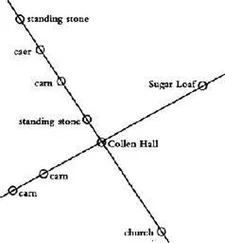Charles M. Sheldon - The High Calling
Здесь есть возможность читать онлайн «Charles M. Sheldon - The High Calling» — ознакомительный отрывок электронной книги совершенно бесплатно, а после прочтения отрывка купить полную версию. В некоторых случаях можно слушать аудио, скачать через торрент в формате fb2 и присутствует краткое содержание. Жанр: Словари, Религиозная литература, foreign_antique, на английском языке. Описание произведения, (предисловие) а так же отзывы посетителей доступны на портале библиотеки ЛибКат.
- Название:The High Calling
- Автор:
- Жанр:
- Год:неизвестен
- ISBN:нет данных
- Рейтинг книги:4 / 5. Голосов: 1
-
Избранное:Добавить в избранное
- Отзывы:
-
Ваша оценка:
- 80
- 1
- 2
- 3
- 4
- 5
The High Calling: краткое содержание, описание и аннотация
Предлагаем к чтению аннотацию, описание, краткое содержание или предисловие (зависит от того, что написал сам автор книги «The High Calling»). Если вы не нашли необходимую информацию о книге — напишите в комментариях, мы постараемся отыскать её.
The High Calling — читать онлайн ознакомительный отрывок
Ниже представлен текст книги, разбитый по страницам. Система сохранения места последней прочитанной страницы, позволяет с удобством читать онлайн бесплатно книгу «The High Calling», без необходимости каждый раз заново искать на чём Вы остановились. Поставьте закладку, и сможете в любой момент перейти на страницу, на которой закончили чтение.
Интервал:
Закладка:
Charles M. Sheldon
The High Calling
FOREWORD
The story, "The High Calling," was written at two different periods, in 1909 and 1910, and was read at two different periods, chapter by chapter, to the young people in my church, on successive Sunday evenings. The main purpose of the story is to illustrate the value of the average American family training and the final victory of the spiritual ideals over material or physical attractions. The final outcome of the struggle which Helen Douglas makes between her natural inclination to follow a life of ease and luxury, and the real training which she has received at home, is the picture of what is going on in the best American homes to-day. It has been my hope that the story would help many young people to realize the great difference between the finest type of manhood and womanhood, and that which in some cases has grown up on American soil, where the standards have been low and the ideals have been obscured by fashion, by false home training, and by superficial ideas of happiness. In other words, my purpose has been to describe, in the main characters in the book, the manly heroic type of Christian struggle and final victory which realizes the response which the higher nature makes to the call from above. This idea which runs through the story gives it its name of "The High Calling." As my own young people gave the story a beautiful reception in their listening to it, it is my earnest hope that if the book has the good fortune to find a larger audience it may reach more young people with the same message.
Topeka, Kansas, 1911. CHARLES M. SHELDON.
CHAPTER I
PAUL DOUGLAS and his wife, Esther, were holding a serious council together over their older boy, Walter.
"I can't help feeling a little disappointment over the way things are going. I did so want the boy to come into the office with me."
"I know," said Esther, with a grave smile, "but he seems to have his mind made up. I don't think we ought to thwart him if he is made to do that for his lifework."
"No," said Paul, looking at Esther with great thoughtfulness, "I have always believed that a boy should have freedom to choose his lifework. But what puzzles me is where did Walter get his leaning toward electrical engineering? None of my ancestors, so far as I know, ever had the slightest tendency that way, and the Darcys for generations have been business men.
"I was in the boy's room the other day," continued Paul, meditatively, "and he had the floor and his bed and the chairs covered with models of electrical machines. I was afraid to sit down or lean up against anything for fear it would go off and give me a shock or something. While I was asking questions, what did the boy do but start a contrivance that hung from the ceiling and it reached down a metallic arm that grabbed my hat off and began to comb my hair. I yelled, naturally, or unnaturally, and tried to get loose, but another contrivance shot out from the wall somewhere and clutched me by the leg and began to make frantic gestures at my shoes like a wild boot-blacking emporium. I decided to stand still rather than run the risk of getting hit somewhere else. Meanwhile Walter was laughing so hard he couldn't answer my emphatic request to know what the thing was going to do. He finally explained that it was a new device he was experimenting with to give the patient head treatment for nervous prostration, and black his shoes while he waited. I made him turn off the power and then I cautiously backed out of the room and gave him my testimonial on the efficacy of his invention adapted to give anyone nervous prostration and general paralysis who never had them."
Esther laughed, the same good, generous, contagious laugh she had always known, and Paul had always loved to hear.
"Walter is a genius. I always said he would make his mark."
"I was afraid he would make several on me before I could get away," said
Paul, smiling. "Well, of course, we have really decided to let the boy
go to Burrton. If he is going to have a thorough course in electricity,
I want him to have the best there is."
"I shall miss him dreadfully. O, dear, my darling!" Esther suddenly yielded to a good cry that somewhat upset Paul. Only once in a while in their married life had Esther given way to such a display of feeling. But before Paul went down to the office that morning she had dried her tears and with a hopeful smile prepared to make out a list of Walter's school necessities for the eight months he would be away from home.
Walter was twenty years old, tall and slim, with his father's features and his mother's voice, and a very strong liking for all scientific and mechanical work. He had within the year graduated from the Milton high school with honors in the physics department, and had at once set his ambition on going to Burrton Electrical and Engineering School, the best school of its kind in the East. His father had made him a tempting offer to come into the News office, but the boy had frankly told his father that if there was anything in the world he disliked it was a newspaper. So Paul, with a sigh of disappointment, had yielded to the inevitable and agreed to the Burrton plan, simply stipulating that Walter, who was disposed to be luxurious in his tastes, should make up his mind to a school course stripped of unnecessary expenses and devoted to the main thing.
"I am willing, of course, to help you with your education," he said, in a very plain, frank talk with Walter when the decision was finally made. "But I expect you to do something for yourself. The Burrton catalogue mentions stewardships which students are allowed to choose in part payment of tuition. Isn't that so?"
Walter looked annoyed and answered his father sullenly.
"Yes, but the stewards at Burrton have to wash dishes and mess around the clubhouses doing odd jobs for the other fellows. It cuts them out of pretty much all the best social life of the school."
Paul looked at his oldest boy indignantly. If there was anything he ever feared it was that his children would grow up to despise manual labor and shrink from it.
"Do you mean to say you are not willing to do your honest part at honest work to get through school? Or do you mean to say, Walter, that the social part of the school is so important that you are going to make it count in your program for an education?"
"No." Walter looked anxious and his tone was changed. "I—well—I naturally don't want to be rated in a class below the rest—I–"
"Do you mean that the stewards at Burrton are looked down on for doing physical work? I understood you to say that Jack Alwin said every fellow at Burrton stood on his merits, and that real scholarship really counted. If I thought there was a spirit of toadyism or aristocracy at Burrton, I wouldn't let you go there."
"They are measured by scholarship," said Walter, in alarm now, lest his father would decide to withdraw his consent to the Burrton plan. "But, of course, if I go in with the stewards I can't expect to go out much, or—but I'm willing to apply for a place, father, I want to go. Don't change the plan, will you?"
"I want you to go, Walter. But I don't want you ever to think that the work of your hand is any less honorable than the work of your head. What little you do won't hurt you at all. And it makes no difference what others think. If you go to Burrton, you go to get an education. And perhaps one of the best parts of it will be in the training you receive outside of the classroom."
So Walter's ambition, so far as his school was concerned, was finally met, though secretly he chafed at the conditions imposed by his father, and when the day came for him to say goodbye and start on his journey of fifteen hundred miles he was not as happy as he should have been, anticipating his position in the school and feeling restless over the task it imposed. At the same time he was so eager to get on with his engineering that he would endure many hard and disagreeable experiences. Paul and Esther took leave of him at the station with a feeling, which they kept from being too sad on the boy's account, that he was going to face a new world and meet some overturning events in the course of the school year.
Читать дальшеИнтервал:
Закладка:
Похожие книги на «The High Calling»
Представляем Вашему вниманию похожие книги на «The High Calling» списком для выбора. Мы отобрали схожую по названию и смыслу литературу в надежде предоставить читателям больше вариантов отыскать новые, интересные, ещё непрочитанные произведения.
Обсуждение, отзывы о книге «The High Calling» и просто собственные мнения читателей. Оставьте ваши комментарии, напишите, что Вы думаете о произведении, его смысле или главных героях. Укажите что конкретно понравилось, а что нет, и почему Вы так считаете.












